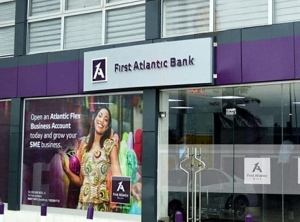One of the main sources of revenue for Ghanaian farmers, particularly those in the middle belt and the Northern Region of the country, is the cashew industry.
Farmers are now at the mercy of middlemen, who set the pricing, as the government is powerless to control cashew prices.
The situation hasn't altered despite multiple government initiatives to stabilize prices which is putting farmers whose livelihoods depend on cashew cultivation through tremendous difficulty.
Abdul Samad Nurudeen, the Bono Regional Secretary for the People National Convention (PNC), explained that one of the main causes of the government's inability to control cashew prices is the fact that the government does not buy cashew from farmers on the Space FM flagship program 'The Hot Points'.
This means that the government has no direct control over cashew pricing, which are primarily influenced by the forces of supply and demand in the market.
He claimed that as a result, farmers are forced to rely on intermediaries who buy cashew from them for cheap and then sell it to Indian exporters for a higher price.
Mr. Samad Nurudeen emphasized that the absence of regulation has also caused a cartel to grow.
The Ghanaian government has tried multiple times to control cashew prices, but none of these measures has been successful. One such intervention was the creation of The Tree Crops Development Authority (TCDA), a body established by an Act of Parliament, the Tree Crops Development Authority Act 2019 (Act 1010,2019), which was intended to provide a platform for the transparent and effective trading of agricultural commodities, including cashew.
Another intervention was the establishment of the Ghana Commodity Exchange (GCE), which was supposed to provide a platform for the trading of agricultural commodities. In Ghana, the cultivation, processing, and trading of six tree crops—cashew, shea, mango, coconut, rubber, and oil palm are regulated and developed under continuous succession by the TCDA.
However, neither the GCE nor the TCDA have been able to successfully control cashew prices, and this has had an impact.
Samad Nurudeen claims that because there isn't enough control, small-scale cashew growers, who make up the majority of the industry, are being taken advantage of. These farmers are frequently taken advantage of by middlemen who offer them low rates for their produce because they lack the tools and know-how to negotiate the market.
He claimed that as a result of the uncomfortable circumstance, many farmers are considering quitting the cashew crop in favor of other lucrative endeavors because it is no longer profitable.
Mr. Abdul Samad Nurudeen concluded by stating that the business has been significantly impacted by the Ghanaian government's inability to control cashew pricing, leaving farmers at the whim of middlemen who set prices.
Regional News of Sunday, 7 May 2023
Source: Seth Opoku Agyemang,Contributor













